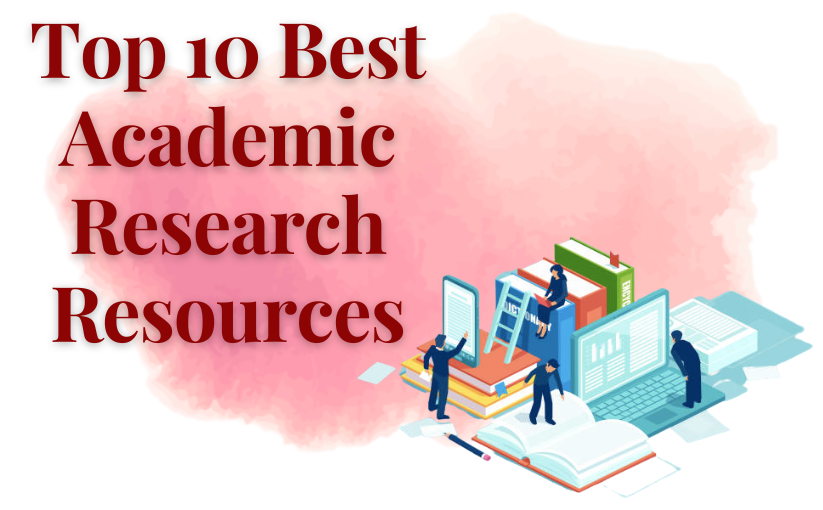Experience Educational Achievement with Docentra: The Solution for Academic Excellence
Experience Educational Achievement with Docentra: The Solution for Academic Excellence
Blog Article
Where to Discover Top Quality Academic Resources for Your Research Study
Recognizing top quality scholastic resources is necessary for extensive study, yet navigating the huge landscape of offered materials can be discouraging. Additionally, on the internet scholastic databases like JSTOR and PubMed aggregate academic articles, while open accessibility journals give more inclusive access to study findings. Comprehending just how to utilize these sources properly might significantly impact your study results.
College Libraries
Beyond physical collections, university libraries frequently supply specific research assistance, consisting of examinations with librarians who possess subject proficiency (Docentra). This support can substantially enhance the efficiency and effectiveness of the study process, allowing users to browse complex information landscapes with better convenience
Furthermore, lots of collections give accessibility to unusual and historical products, which can be vital for advanced study jobs. Such one-of-a-kind resources typically include primary documents, manuscripts, and historical collections that are not readily offered elsewhere.
Additionally, university libraries regularly hold workshops and seminars targeted at improving information literacy skills. These efforts empower students and professors to seriously examine sources, an essential skill in today's information-rich atmosphere. On the whole, college collections not just act as databases of understanding but also work as vibrant centers that foster academic development and advancement.
Online Academic Databases
In the world of scholastic research, online scholastic databases play a pivotal duty in supplying pupils and scholars with instant access to a wide range of scholarly articles, journals, and various other important sources. These digital databases function as central systems where users can efficiently look for peer-reviewed literature throughout different disciplines.
Famous data sources such as JSTOR, PubMed, and Scopus host considerable collections that cover a wide range of topics, from the humanities to the scientific researches. Docentra. By using innovative search functionalities, scientists can refine their questions, filter outcomes by magazine date, and gain access to citation devices, consequently enhancing the research study procedure's effectiveness and precision
Furthermore, numerous data sources provide attributes like notifies for brand-new magazines and the capability to conserve and arrange articles, additionally streamlining the research study experience. Registrations to these databases are typically supplied via scholastic organizations, approving students and professor unlimited accessibility to premium material.
Open Access Journals
Increasingly, researchers are turning to open up accessibility journals as a complementary source to traditional academic databases. These journals give an important platform for distributing research study findings without the monetary barriers typically related to subscription-based publications. Open gain access to designs enable complimentary on the internet accessibility to academic write-ups, making certain that study comes to a bigger target market, content consisting of practitioners, policymakers, and the basic public.
The top quality of open accessibility journals has substantially improved, with numerous sticking to extensive peer-review procedures and being indexed in reputable databases. This change has actually promoted greater transparency and cooperation in the academia, as scientists can share their work more conveniently and get feedback from varied point of views.
Additionally, the proliferation of open accessibility journals straightens with the worldwide movement in the direction of open science, promoting the concept that publicly financed research study should be easily offered to all. Researchers looking for top notch academic sources ought to consider reliable open accessibility journals, such as those noted in the Directory site of Open Gain Access To Journals (DOAJ) or those released by acknowledged scholastic societies. By incorporating open gain access to journals right into their research approaches, scholars can enhance the presence and impact of their job.
ResearchGate and Academia.edu
ResearchGate and Academia.edu have arised as pivotal platforms for scholastic networking and knowledge sharing, with numerous scientists leveraging these sites to distribute their job and get in touch with peers. Both systems permit users to produce profiles that showcase their magazines, study rate of interests, and scholastic success, helping with better visibility within the scholarly area.
ResearchGate, founded in 2008, concentrates on advertising cooperation among scientists through features such as research study cooperation tools, project sharing, and question-and-answer forums. Users can submit their papers, take part in conversations, and follow the work of others, improving the joint possibility of their research. The platform likewise gives metrics on paper exposure and downloads, enabling scientists to assess the influence of their job.
Academia.edu, introduced in 2008 too, runs similarly but emphasizes the sharing of academic papers. Users can comply with specific research topics and obtain updates on brand-new magazines within their locations of interest. Additionally, Academia.edu supplies analytics on viewers interaction, assisting researchers understand their target market much better.
Both platforms act as valuable sources for accessing high-quality academic content and cultivating connections that can bring about impactful collaborations.
Google Scholar and Beyond
Academic networking platforms like ResearchGate and Academia.edu play a significant role in sharing study, yet Google Scholar uses a different dimension by acting as a detailed internet search engine for academic literature. It indexes a large array of resources, consisting of peer-reviewed write-ups, theses, publications, seminar proceedings, and licenses, making it an invaluable device for researchers throughout self-controls.
Google Scholar supplies various features that boost research study efficiency. The citation monitoring function permits individuals continue reading this to see how usually a paper has actually been cited, giving insights into its influence within the academia. In addition, the "related write-ups" function aids scientists find comparable research studies, facilitating a much more comprehensive expedition of a topic.

Conclusion
In conclusion, accessing high-grade academic sources is essential for rigorous research study. College collections give extensive collections and skilled advice, while online academic databases such as JSTOR and PubMed centralize scholarly short articles. Making use of these resources collectively can considerably improve the high quality and depth of academic research study.
Report this page